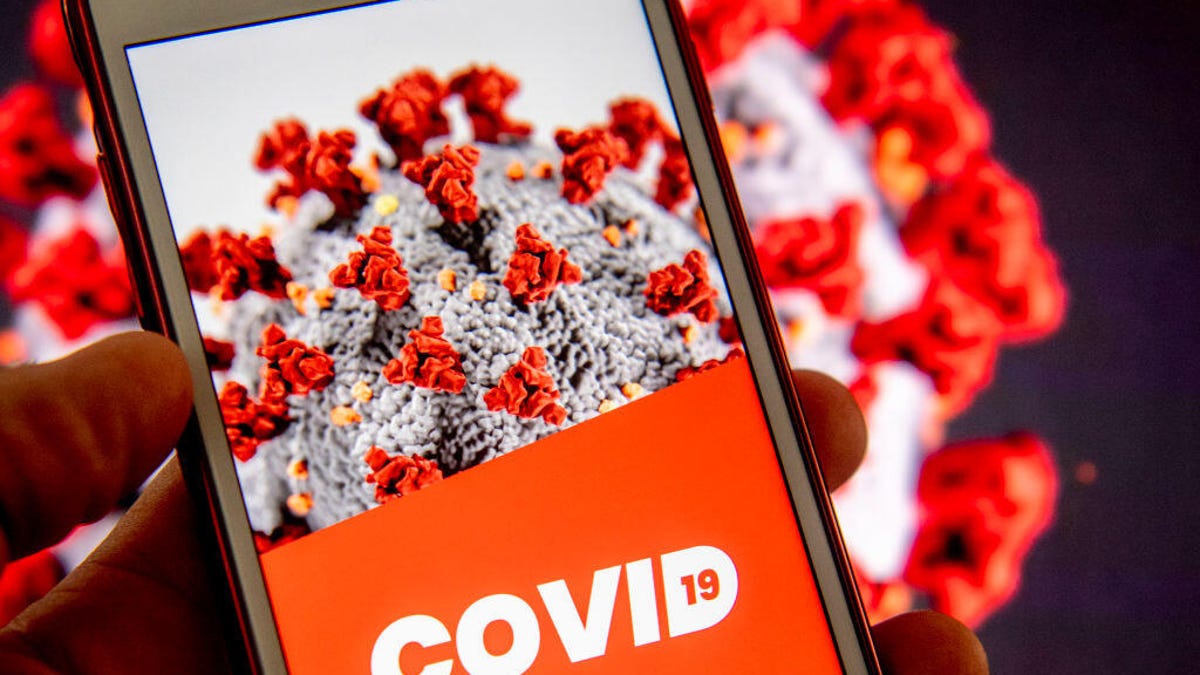UK to begin testing coronavirus contact-tracing app without Apple and Google
The UK has been developing its own app since early March.

Contact tracing combined with testing is seen as key to keeping the coronavirus at bay.
The UK on Monday said it'll begin testing its coronavirus contact-tracing app this week as part of the next phase of its plan to lessen the spread of COVID-19. The trial will take place in one region and, if successful, the app will then become available for people across the country to download.
Contact-tracing apps are being developed by countries across the world to inform people when they might have come into contact with someone who has coronavirus. They rely on a phone's wireless communication tech -- usually Bluetooth -- to keep a record of who someone has been in close proximity with, using unique identification numbers for privacy . If that person later develops suspected or confirmed symptoms, they can then choose to alert all the contacts their phone has stored.
The UK trial will take place on the Isle of Wight, an island off the country's south coast that will provide a scientifically controlled environment in which to test the app. UK Secretary of State for Health Matt Hancock, speaking at the government's daily coronavirus briefing Monday, encouraged everyone living on the Isle of Wight to download the app and take part in the trial.
Coronavirus updates
"By downloading the app you're protecting your own health, the health of your loved ones and the health of your community," he said. He added that the trial doesn't mean an end to social distancing measures.
The UK has been developing its own contact-tracing app since early March, well before the country went into lockdown on March 23. The government hopes that at least 60% of the population will download the app for it to work most effectively, though doing so will be voluntary. It forms part of a broader strategy to crack down on the spread of the virus, which also includes extensive testing and manual contact tracing via interviews.
Unlike Germany, Austria, Switzerland and Ireland, the UK chose not to use the contact-tracing platform being developed by Apple and Google, or to take a decentralized approach that allows alerts to be sent between devices, which prioritizes protecting the data and privacy of users.
Instead, the UK has opted to take a centralized approach, which means that when someone is confirmed to have coronavirus their contact details will be uploaded to a central depository, which will then send out alerts to the people they've come into contact with. Data uploaded to, stored in and analyzed by the central system will not include personal information and will identify people only by a random identification number.
If privacy was the only concern then a decentralized approach might have worked better, NHSX CEO Matthew Gould said in a Parliamentary committee meeting Monday. (NHSX is the tech arm of the National Health Service.) But the NHS has decided to balance privacy with the need for public health authorities to gain insight into the virus, he added, which a centralized approach allows for.
"Privacy is at the heart of the app," he said. "It doesn't know who you are, who you've been near or where you've been."
Gould was keen to emphasize that the NHS is "not in competition" with Apple and Google, and in fact is working "phenomenally closely" with the two companies to ensure that the app works effectively. He also said he wasn't "particularly wedded" to the centralized approach and that the NHS could pivot to a decentralized approach if it becomes clear it'd be the better solution. "If we need to shift, then we will," he said.

